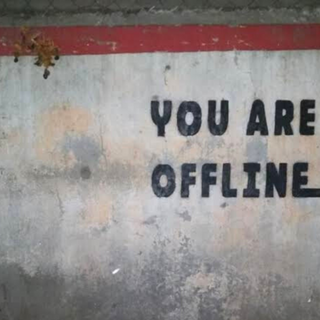
Men More Likely to Receive Pay for Parental Leave than Women: Report
Unless paid for it, men don’t avail of paternity leave, while women, on account of physical recovery, have to accept unpaid maternity leave.

Per the U.S. Bureau of Labor Statistics, 89% of companies don’t offer paid maternity or paternity leave. Currently, the U.S. is the only developed country in the world without a national policy for paid leave for new parents.
In a new study, around 65% of U.S.-based men have reported receiving some pay, compared to 53% of women, for availing of parental leave. In the U.S., parental leave laws vary from state to state; the only national policy in place falls under a broader labor law that allows employees to take up to 12 weeks’ unpaid leave for family care — including a newborn — and/or personal health recovery reasons, with the assurance they can return to their job after availing it. Only a few states have enacted paid family leave policies, though many have laws that supplement the national policy in some way.
The current study was conducted by New America, a Washington D.C.-based think tank, on a mix of 2,966 men and women. More than 52% of fathers said they had the option of fully paid parental leave, compared to just 35% of the mothers, though mothers were slightly more likely to get a partially paid parental leave. 40% of women, on account of needing time for physical recovery, said they had to take unpaid parental leave. Only 28% of men in comparison availed unpaid parental leave. For most respondents, money was an important factor when deciding to take parental leave — but both men and women equally stated their need for parental leave.
“The central theme of this report is that men and women both want to take leave and men are less likely to take it,” Amanda Lenhart, deputy director at the Better Life Lab at New America, who worked on the report, told HuffPost.
Although the report didn’t delve into the length of parental leave taken by men and women, another piece of research conducted by the Pew Research Center in 2017 has some insight to offer: men tend to take one week, while women take, on average, 11 weeks.
While part of this problem has its roots in cultural expectations of men and women as breadwinners and caregivers respectively, which keeps men out of the house when they should be sharing the responsibility of bringing up a child equally, men who took the survey hinted that the society may not be fully ready to see this yet.
Take for instance Peter H.’s response to the survey. The 42-year-old father said, “I took paternity leave from my job recently. Four months. I felt sort of frowned upon about it. As a man,” reported HuffPost. “Taking full paternity as a sales rep seemed weak.”
Another father, Dave Sucharski, was reported saying, “I had no one in my inner circle of family or friends who could say, ‘Oh Dave, it’s so important for you to be there.” “I don’t feel (taking leave) is widely accepted in the business world. I felt the pressure that my job is to be the breadwinner, not to be home with the ice packs and baby bottles,” he told HuffPost.
Among heterosexual couples, as is well-known, a male worker is less likely to opt to take time off following the birth of a child. Researchers of this report also didn’t observe anything different.
Related on The Swaddle:
70% of India’s Working Women Struggle to Resume Career After Family Leave: Report
“If you have a female member of a hetero couple who earns less, that is one tick on the ledger,” Lenhart, of New America, told HuffPost. “It’s easier to earn less of her income than her spouse’s.”
However, among LGBTQIA+ individuals, who also constituted a small sample set in the New America survey, attitudes were pretty similar when it came to taking parental leave.
“Research … suggests that same-sex couples adopt breadwinning and caregiving divisions of labor similar to heterosexual couples, especially after having children,” Lenhart said.
Although the report highlighted that the culture might be changing, with more men showing a willingness to take parental leave, as The Swaddle has previously reported, the majority of caregiving and household chores still falls on women.
Stating findings from a survey, TS reported, “And, even though as many men as women said they take parental leave so they can do best by their newborns, more than half the men admitted their partner handled the lion’s share of parenting responsibilities.”
As of today, India doesn’t have any laws that offer employees even unpaid paternity leave — paid paternity leave is a distant goal. Still, a few private organizations are doing their bit to bring about a change in the mindset that caregiving is not just a woman’s role. The latest initiative was taken by food app company, Zomato, which gives its employees and non-birthing parents — i.e., those who choose to go for surrogacy, adoption, or are in a same-sex relationship — a 26-week paid parental leave, at par with the number of weeks new mothers can avail by law.
Anubhuti Matta is an associate editor with The Swaddle. When not at work, she's busy pursuing kathak, reading books on and by women in the Middle East or making dresses out of Indian prints.
Related


India’s Internet Shutdown in J&K Is Now the Longest Imposed in Any Democracy
